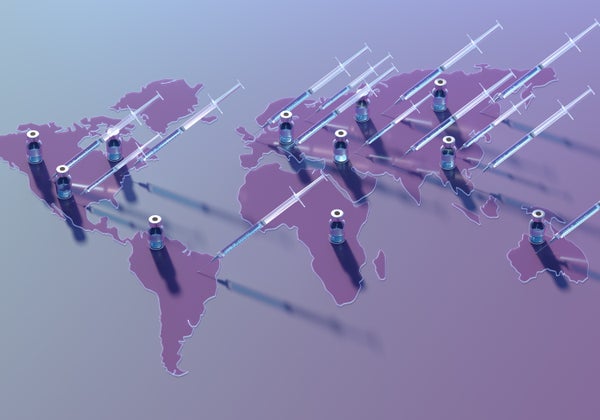Vaccines Save Lives. That’s Why We Need Global Immunization
The Trump administration decision to halt funding endangers immunization of 75 million children over five years. More than 1.2 million deaths could result

Andriy Onufriyenko/Getty Images
On March 17, in the heart of Burundi’s Mpanda District, a historic moment unfolded for the country. Her Excellency Angeline Ndayishimiye, the country’s first lady, cradled a baby named Elvis as he became the first child in the nation to receive the malaria vaccine. His cry, echoed through the hospital room, signaling new hope in the nation’s long struggle against malaria.
However, as Elvis giggled in his mother’s arms, another, far less hopeful, moment was unfolding. The recent Trump administration decision to halt funding for Gavi, the Vaccine Alliance, threatens to undermine immunization efforts for approximately 75 million children over the next five years, potentially leading to more than 1.2 million preventable deaths. Decades of hard-earned advancements are now at risk.
This vaccine, the RTS,S, approved by the World Health Organization in October 2021, represents decades of research, transnational collaboration and advocacy. Trials involving over 800,000 children in Ghana, Kenya and Malawi demonstrated a 50 percent reduction in malaria cases within the first year of immunization, with booster doses further increasing effectiveness. Another promising vaccine, R21, also adds to the arsenal of solutions. Combined with traditional interventions such as insecticide-treated nets and seasonal malaria chemoprevention, these vaccines could reduce malaria disease burden by up to 90 percent.
On supporting science journalism
If you’re enjoying this article, consider supporting our award-winning journalism by subscribing. By purchasing a subscription you are helping to ensure the future of impactful stories about the discoveries and ideas shaping our world today.
Malaria remains one of the world’s deadliest diseases; for children under five in sub-Saharan Africa, it claims over 430,000 young lives each year. Beyond the immediate human toll, malaria also weakens economies, reinforces poverty and burdens fragile health systems already stretched by crises. Vaccines, now within our grasp, are the game changers we’ve been waiting for.
Burundi’s rollout of the malaria vaccine testifies to what global collaboration can achieve. Led by Burundi’s Ministry of Health and backed by partners such as Gavi, UNICEF and the WHO, the campaign reflects what can happen when political leadership, technical support and international solidarity align. The launch was more than symbolic. It was a signal to the world: malaria control is achievable with sustained global commitment.
Nineteen African countries have now integrated malaria vaccines into their immunization programs. This coordinated effort has the potential to save tens of thousands of lives each year. But the momentum depends on continuous investment and global cooperation, currently jeopardized by shifting political priorities.
As the U.S. retreats from its leadership role in global health, other nations must urgently step up. European donors, grappling with shifting priorities and domestic pressures, must recognize that scaling back vaccine investments invites the resurgence of preventable diseases—not just in faraway places, but at home. Japan, long a stalwart supporter of global health, must resist turning inward in the face of economic pressure. And emerging economies and private-sector philanthropies must seize the opportunity to fill the leadership vacuum.
This is not merely about charity. It is about global stability, health security and moral responsibility. Vaccination programs not only save lives—they strengthen health systems, build trust in institutions and create the conditions for economic resilience. They reduce the risk of pandemics, limit the spread of disease and provide a foundation for human development.
The story of Elvis, vaccinated in the arms of Burundi’s first lady, is one of hope—but also of risk. If we allow donor fatigue or political distraction to weaken support, we will lose more than momentum. We will lose lives—millions of them.
The world must choose: invest in vaccines and secure a future defined by health, equity and opportunity; or retreat into a more dangerous, more vulnerable age—one where preventable diseases return with a vengeance, and hope becomes the exception, not the rule.
Now is the time to recommit. To double down. To recognize that global health is a shared responsibility. For Elvis and for every child like him, we must ensure that a lifesaving vaccine is never out of reach.
This is an opinion and analysis article, and the views expressed by the author or authors are not necessarily those of Scientific American.




